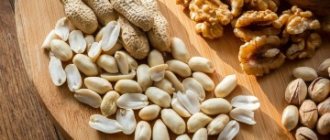Completion of breastfeeding and, accordingly, weaning the baby from the mother's breast is always stressful for the baby and mother.
Weaning from the mother's breast is considered the most painless, gradual, over several months. At the same time, milk begins to be produced in smaller quantities, and the child can gradually switch to regular food. However, in some cases it is necessary to use special tablets to stop lactation.
It is important to make a reasonable choice of medication and correctly assess the feasibility of its use. Tablets used to suppress or stop the production of breast milk act on the central nervous system, as well as the endocrine system. That is why you need to be careful about their use. The question of the need to use these drugs should be asked by an experienced doctor, who will assess all the risks and benefits of such tablets, and also select individual doses.
Pill to stop lactation: principle of action
All drugs that are used to suppress breastfeeding act on a woman’s hormonal system, causing the body to stop producing prolactin (the hormone responsible for milk production). They must be taken with extreme caution, since the hormonal system is very, very unpredictable, and for some women they may simply be contraindicated. Such tablets contain the female hormone estrogen, and it, in turn, can depress the general condition, as well as cause nausea, dizziness, and weakness. Many people note that no matter what pill they took to stop lactation, they always felt side effects. And, unfortunately, there are a lot of them. After all, it is difficult to stop the process started by nature and the body, and therefore you will have to experience the disadvantages of such a drug.
Brief characteristics of tablets to complete breastfeeding
There are several ways to quickly complete lactation. The previously popular pulling, pumping, and separation from the child for several days are considered not only ineffective, but also dangerous for the physical health of the woman and the emotional state of the child.
Today, an increasing number of young mothers prefer to complete breastfeeding with the help of special pills.
Their action is based on an artificial reduction in the synthesis of the hormone prolactin, which stimulates the production of breast milk in a woman. The principle of action of all drugs is identical - they act on brain receptors and change hormonal levels, as a result of which the amount of prolactin decreases.
The drugs differ in their speed of action, available contraindications and side effects.
In what cases may you need to take such a drug?
The decision to stop breastfeeding should never be spontaneous or dependent on the whims of the mother. This is a very serious stress for the body, which must sharply reverse the triggered mechanism. As a rule, women resort to this emergency method only when faced with serious problems.
Stopping breastfeeding with medication may be necessary:
- Problems directly with the mammary gland and breasts. Continuous lactostasis and mastitis with pus and fever, various inflammations of the breast can lead to disastrous consequences and even surgical intervention. In this case, the doctor may advise interrupting feeding in order to restore the mother's health.
- Immediately after childbirth, such medications are prescribed to mothers suffering from HIV infection, tuberculosis and other serious diseases that can be transmitted from mother to baby through milk.
- If the mother has cancer that requires radiation or chemotherapy, pills are prescribed to stop lactation. Reviews from women who took them during this period are positive. But without consulting your doctor, there should be no independent attempts to take this medication!
- If a woman has had a childbirth that ended in the death of the newborn, in order to suppress the production of unnecessary milk, pills are prescribed to stop lactation.
A few words about the problem of weaning and lactation
There comes a time when the impatient little one becomes unable to get enough of this priceless product, which nature has so generously endowed the caring mother with. Don't miss the moment and try to cope with your emotions!
The baby will insistently demand the breast and be capricious, not getting what he wants. Be gentle and patient. Wean him off gradually, reducing the amount of breastfeeding and the frequency of feedings. If the child’s age allows, explain that “another little one needs milk,” or come up with your own version.
The situation with physiology is a little more complicated: the production of milk by the glands continues after weaning. Persuasion and arguments will not help here. There is only one way out: to use medication or traditional methods of stopping lactation.
Try to drink less fluid. Whatever method you choose, remember the basic rule: you must express milk as you gradually stop lactation.
This way you will avoid unwanted congestion and possible inflammation of the mammary glands. There is no need to express milk completely. The remaining volume “forces” the body to produce less milk, and prolactin levels decrease. Gradually, lactation fades and the milk “burns out.”
Do folk remedies for stopping lactation not help or are they quite painful? Take advantage of the expert advice below.
Another option is to wrap the breasts with a bandage or sheet to stop lactation.
"Dostinex"
This remedy is one of the most common means of stopping feeding. The principle of its effect is the suppression of lactation with a decrease in prolactin.
As soon as prolactin ceases to be secreted, milk also disappears.
This drug looks like an ordinary flat tablet. They are produced in two or eight pieces per bottle.
The manufacturer promises that the level of prolactin in the blood (or, more precisely, in the plasma) will drop within 2-3 hours, and this effect will last for more than two weeks. And during this time, the milk, as they say, will have time to “burn out” and will no longer be released.
You don’t have to take it for a long time: for the desired effect, it is enough to take half a tablet 2 times a day for two days.
Many buyers prefer Dostinex because it has a minimum of side effects, unlike many other similar drugs. True, the cost of these tablets is quite high: almost 2 thousand rubles.
Folk remedies
Many women use traditional methods to stop lactation. Unfortunately, such recommendations do not always coincide with what experienced doctors say. The essence of this contradiction lies in the hormonal regulation of milk production. Some folk remedies to reduce lactation:
- Cooling procedures. For example, a cold shower. This method aims to reduce the level of oxytocin in the blood, which is produced during lactation. As a result, it becomes more difficult for the baby to get enough milk. And the protein responsible for transmitting the signal that the breast is empty will not be produced.
- Drag. This is a questionable method that is more likely to lead to illness than to stopping feeding.
- Diet. Does not affect milk supply in any way. If there is a lack of nutrients through the stomach, the body replenishes it from internal resources. This can lead to bone problems. After all, milk contains a lot of calcium, and if you do not get it from food, then depletion of the skeletal system will begin.
- Medicinal herbs. This is a great solution. It is only important to choose the right medicinal plant. It should contain plant hormones similar to progesterone, which can stop the production of prolactin. There are few such herbs. Here they are:
- hop;
- sage;
- chaste vitex;
- meadow arrow;
- cuff;
- raspberry leaves.
In general, the differences between traditional medicine and modern medicine are obvious. Traditional medicine is much gentler. There are no drastic changes that can affect the hormonal sphere, the psychological state of the mother, etc. But, unfortunately, in some cases, urgent intervention in the situation is necessary. The advantage here is on the side of modern means.
Endocrinologists recommend combining these methods. The composition of medicinal preparations and infusions is very wide and can compensate for some deficiencies in the female body, easing the side effects of the pills. And cooling procedures are excellent in reducing discomfort in the chest.
Terminating lactation with folk remedies is an excellent and safe solution for any breastfeeding woman.
Side effects of Dostinex
"Dostinex" is a strong, but still the most gentle drug for stopping breastfeeding. However, being a hormonal drug, it has a number of side effects.
1. During long-term use of Dostinex, problems with blood pressure may occur, so try not to take it immediately before driving. Headaches accompanied by nausea may occur.
2. From the nervous system, sleep disturbances, anxiety appear, and some may even develop increased sexual activity.
3. The gastrointestinal tract may also react to taking this drug. Constipation, increased flatulence, abdominal pain - all this can occur while taking Dostinex.
general information
Typically, the breastfeeding period lasts up to 9 months, which is considered normal. Modern women are increasingly approaching breastfeeding very responsibly, going through all its phases. Sometimes circumstances force you to take extreme measures.
What to do to stop breast milk? For medicinal cessation of lactation there must be special indications, such as:
- purulent phase of mastitis;
- maternal illnesses (acute infectious);
- child's illness.
Sometimes women’s milk runs out on its own, which does not lead to any stressful conditions for the baby and mother. If this is not the case, or something happened that makes it necessary to urgently stop lactation, you will have to resort to proven methods.
It is still better to complete feeding in a natural way. This must be done carefully while avoiding stressful situations for the baby. You cannot stop feeding before a long trip, moving, when the baby is sick, or at the stage when the baby eats only breast milk.
It is best to reduce the number of feedings. It's very easy to do. Night feeding is gradually eliminated, then artificial complementary foods are introduced. Excess milk is expressed. In this case, you should carefully monitor the health of the nursing mother. If lumps appear on the chest and body temperature rises, consult a doctor immediately.
The pills used to stop lactation are hormonal. Their action is aimed at inhibiting the production of the hormone responsible for breastfeeding. This method is very convenient to use because it is simple and reliable.
After starting to take the pills, putting the baby to the breast is completely abolished.
Medicines to stop lactation should be taken only after consultation with a specialist. The doctor will take into account all the individual characteristics of the woman and will be able to correctly select the most suitable drug. This will protect the young mother from unnecessary side effects. In general, the list of side effects is the same for all drugs in this group. This:
- increased fatigue and weakness;
- vomiting and nausea;
- headaches and dizziness;
- drowsiness.
The negative effect of the treatment will go away as soon as the medication is finished.
There is also a category of side effects that are not so harmless:
- depressive states.
- disorders of the functions of the internal glands.
- hormonal disorders.
- exacerbation of chronic diseases.
"Bromocriptine"
Bromocriptine lactation cessation tablets are also taken to suppress prolactin production. By the way, the spectrum of action of Bromocriptine is much higher than that of other anti-lactation drugs. For example, it is taken for amenorrhea and menstrual irregularities. Even for men, these pills will be beneficial if they are diagnosed with prolactinoma.
To stop lactation, take it twice a day, one tablet on the first day, and then the dosage should be doubled and the course should be taken for 2 weeks. If the milk still does not disappear, then the course is extended for another week. That is, the course of taking these pills is quite long. In addition, tablets for stopping lactation "Bromocreptine", as well as all similar medications, have a fairly large list of contraindications.
Side effects of Bromocriptine
Like any hormonal drug, Bromocriptine can have side effects.
- Many people complain of nausea and even vomiting in the first days of taking it.
- Some report feeling sleepy throughout the day, while others report insomnia. That is, side effects may manifest differently in different people.
- Weakness, low blood pressure, and headache are also noted.
- Under no circumstances should you take Bromocriptine with alcoholic beverages. In this case, the side effects are much stronger, and the effectiveness of the drugs is significantly reduced.
Additional Information
If a woman has been breastfeeding for more than 9 months, then she can do just fine without the intervention of pills that reduce lactation. This is explained by the fact that over time the baby needs less milk, and additional complementary foods are introduced. Night feedings are excluded. All this leads to a gradual decrease in milk production from the mammary glands. This process can go unnoticed. If a young mother notices such changes in the regimen and composition of feedings, then in no case should you rush to take medications. As a last resort, choose one of the traditional medicine methods that stops breastfeeding in a non-drastic way.
Any means to suppress lactation is a deliberate step that is taken only with the approval of a doctor and with full awareness of the consequences. In this article, we have discussed all the methods for ending breastfeeding. Answered important questions related to them.
Contraindications
The pill to stop lactation is contraindicated for those who have serious kidney and liver problems or chronic diseases. Therefore, you should not make an independent decision about which anti-lactation medications to choose. It is imperative to consult a doctor who will prescribe the required dose. Both Dostinex and Bromocriptine have contraindications for use.
They should not be taken by people with a history of heart or vascular problems. If you have a tendency to hypertension (high blood pressure), or, conversely, you suffer from low blood pressure, then you should not take it under any circumstances. Chronic gastrointestinal diseases can also negatively affect your health. Of course, all hormonal problems should not be treated with Bromocretin or Dostinex on your own. Be sure to consult your doctor before you start drinking them. Even if your best friend took these medications and they helped her. Here you should not rely on the advice of ordinary people.
The use of compresses in the practice of reducing lactation
Compresses with various mixtures are successfully used to stop lactation. Both folk remedies and well-known drugs are used. Traditional medicine recommends a compress made from a honey-rye mixture and the cabbage leaf we already know. A cold compress for 5-7 minutes will be helpful to relieve swelling.
Attention! If, due to stagnation of milk, the temperature rises and pain increases, there is a danger of developing mastitis. Seek medical help immediately!
Our grandmothers used camphor oil to stop lactation. Its main effect is warming. However, do not overdo it: you may get burned. Wear this “bandage” as long as you feel moderate warmth. Fixing your breasts tightly with a bandage or gauze with a strong-smelling oily liquid will relieve pain.
For your benefit and for the joy of your children
Nature has gifted us with countless natural medicines. Man has created effective remedies for many diseases. You just need to use them wisely, not counting on “maybe it will pass” and, if necessary, consult a doctor in a timely manner.
We hope that the information given in this article helped you in solving the problem. We do not say goodbye to you, but say “goodbye.” Wait for new interesting facts from the series of motherhood and childhood, subscribe to our blog updates, invite your friends. Live colorfully and be healthy, and let your children always make their parents happy!









